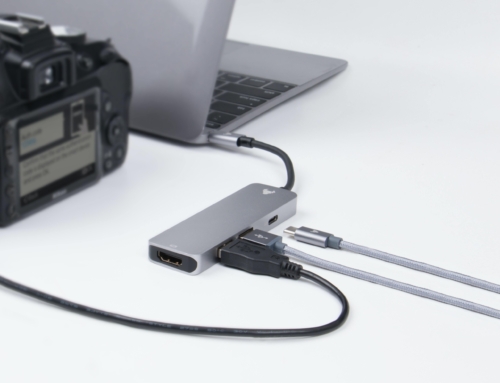The word “gig”, or freelance, refers to an assignment or job that is for a brief period. Gigs were formerly designated for musicians or models. Those were the days, but they are long gone. To escape the traditional 9-to-5 grind, an increasing number of Americans are opting to work on-demand. Thus, businesses hire them as freelancers or independent contractors, rather than full-time employees.
With the advancement of technology, individuals today may work from almost any location. Then, they can complete freelancing assignments for a broad variety of sectors and clients. Online marketplaces such as Upwork and Etsy enable short-term workers to write material, design websites, and even sell their items, all on their own time and at their convenience. Lodging websites such as Airbnb and Onefinestay, on the other hand, allow individuals to earn an extra income by renting out their spare rooms. Uber also provides the ability for nearly anybody (with a car) to convert their vehicle into a metered taxi service.
Freelance Allow More Flexibility
Combine and contrast your engagements, and presto: you’ve achieved the ideal work-life balance. Provided you have a laptop and good WiFi, you could “gig” from anywhere. This includes a mountaintop perch, a log cabin, or even your lounge room (in your pajamas). Freelancing also comes with the excitement of not knowing what’s around the corner, but being open to the options. Isn’t it amazing how liberated it all sounds?
The expanding gig economy (also known as the freelance economy) brings with it a huge decision: whether or not to become a freelancer. To many, it may seem a sensible lifestyle option (if not the only way to go). However, before completely abandoning paid jobs, it is necessary to do a reality check.
Advantages of Working Full-Time
There’s a lot more to freelancing than having the ability to work from home and being your own boss. Benefits given by employers, including health insurance, are among the most significant advantages of full-time employment. A staff position often includes all of these benefits, while freelancers must fend for themselves on all fronts. Take a break from paid vacations (unless you’re able to work from a beachside laptop beneath a palm tree) and sick days, since no firm or technology platform will compensate you for doing absolutely nothing.
You’ll also be responsible for managing your own taxes, including the self-employment tax, and if you want to start saving for retirement or a significant purchase such as a house, you’ll have to seek out how to do it on your own as well.
The Trade-off Between Flexibility and Security
For some, the thought of sitting at the same desk every day seems daunting. Having a full-time job is almost a need for others who want the financial stability that comes with it. The freelance lifestyle may be quite freeing, and since you are your employer, you do not need to answer to anyone else – except for your customers. As a result, there is the issue of finding a job in the first place to consider.
Because no one will assign you to work, you will have to work hard to get assignments on your own. And, in the case of digital networks, many of them provide little in compensation. They’re also not something that you can completely depend on for a consistent source of revenue. For example, Airbnb revenue is based on the number of reservations received, while Etsy revenue is contingent on the number of purchases made. Since you cannot generate money if you don’t sell anything, gigging may be a dangerous business.
Pay on a Per-Gig Basis vs Paycheck
One of the most significant benefits of a full-time job is knowing that you will get a regular salary. This is a feeling of financial stability that may be quite beneficial when it comes to budgeting and saving. In the realm of freelancing, however, this is just not the case. In the freelancing world, you bill as you earn regardless of how often (or seldom) you accomplish tasks. The most difficult problem for freelancers, therefore, may be ensuring that they have enough jobs/gigs set up to provide the income flow they need to exist.
The age at which you are considering changing your career has a significant impact on your chosen path. For example, if you’re just out of college, you don’t have the financial security net to depend on jobs. Do you have the “on-the-job” experience to launch a freelancing career? If not, it’s possible that you’d be better suited looking for side projects and freelancing possibilities in addition to your regular employment.
You must be willing to accept the responsibilities that come with being a freelancer. However, if you’ve been in the workforce for a handful of years or longer, have developed solid skills, recognized a services niche, and developed relationships with persons or groups who may be able to provide you with work, you may have the foundation for establishing a strong gig workflow and a good freelance career.
Factors Contributing to Loneliness

Freelancing may be a somewhat isolating occupation. Generally speaking, it lacks the social contact and hustle of an office job, and you don’t have any coworkers to talk to. It is frequently the case that a computer has become a freelancer’s best buddy. You may explore sharing an office space with another person or hiring a place in a co-working facility, but this would incur additional fees. Then there’s the matter of missing out on social occasions such as Christmas workplace parties. Unless you arrange your party, you can probably forget about attending any since your customers are unlikely to ask you to theirs. Involve yourself in professional groups where you may network with individuals in your area.
On the other hand, if you’re more of a recluse, freelancing is a terrific way to get your job done without having to spend hours with people in meetings or struggling to come up with anything to say while everyone is gathered around the coffee maker.
Freelance vs Full-Time: Which Is Right for You?
A young adult’s life is the ideal time to take measured risks, such as starting a freelance business. This stage of life is when you’re most likely to be youthful, and strong, and without children reduces this need for employer-provided advantages. Further, if you are talented at what you do, you may be able to make career jumps that would otherwise be impossible in a more organized office atmosphere.
Although the entrepreneurial call may be too loud to resist, it is possible to achieve a healthy work-life balance and even build a prosperous profession with a great deal of dedication and the appropriate attitude. To be safe, it may be best to stick with your day job and dabble with a few side jobs until you’ve built up enough experience (or built up a large enough safety net). If they take off, that’s fantastic! Even if you don’t, at the very least you’ll be able to pay your expenses.





